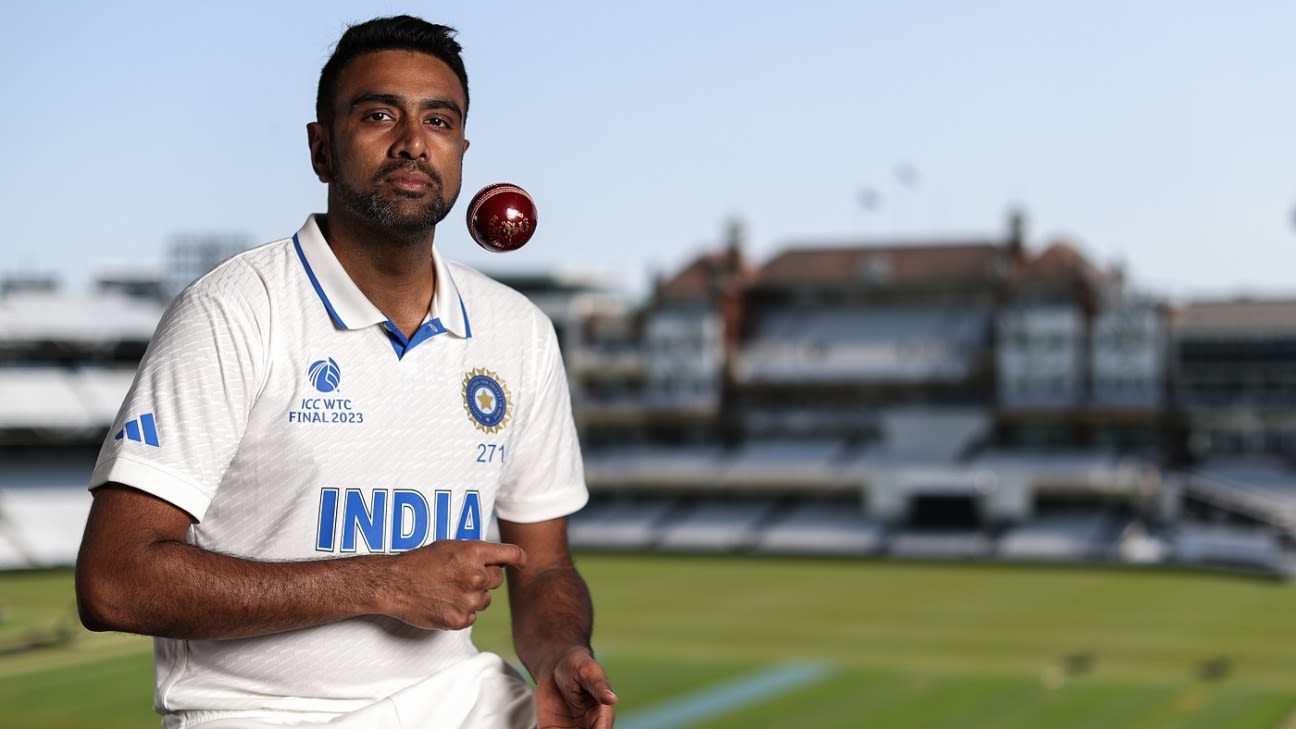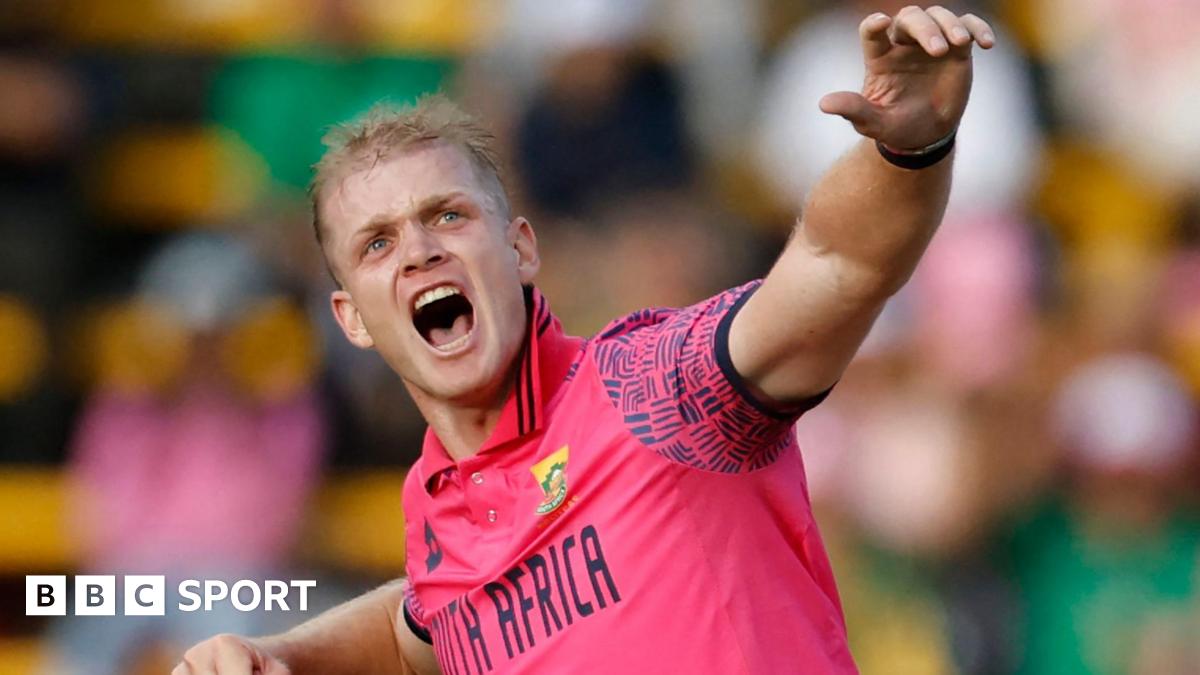R Ashwin: the great problem-solver who played cricket for cricket’s sake

From Bunty Aur Babli, the Indian Bonnie And Clyde of sorts, the first words of narration, to set up the two lovable rascals: “Yeh world hai nah world, isme do tarah ke log hotay hain. Ek jo sari zindagi ek hi kaam kartay rehtay hain, aur dossray jo ek hi zindagi mein saray kaam kar detay hain.”
Translated: “In the world that is, there exists two kinds of people: ones who do just one type of work all their life, others who do all types of work in just one life.”
Ashwin is among the second type. He wanted to bat, he wanted to bowl fast, he wanted to captain, he wanted to organise matches. When injury put Ashwin the boy out of commission, he wanted to be involved even if it meant scoring. He wanted to share the ride with you all so he started his YouTube channel even while he played without any commercial arrangement.
Most importantly he wanted to do all there was to be done in what was his bread and butter. Most of us Indians don’t experiment lest we end up losing what we have earned through blood, sweat and tears, and luck, in a country as fiercely competitive as India. But Ashwin did everything there was to be done in the department of offspin bowling. Pundits kept telling him he experiments too much. That offspin is about doing the one same thing all your life. That he will lose his stock ball if he keeps, in his own words, “monkeying around”. Then what will he do?
Ashwin was incredibly secure and confident in his ability to land the ball where he wanted it to land, and so he pushed the art to its limits with other things. Different run-ups, different load-ups, different seam orientations, different balls altogether, while always landing the ball where he wanted it to.
This writer once asked him if he didn’t fear losing the quality offbreak. “Then what will you do?” He said if he did lose it, it would mean it wasn’t his to keep. He never let that fear, that conservative mindset, come in the way of his pursuit for excellence.
The irony now. A Hindi line to sum him up. When he was still not an offspinner yet, he almost quit cricket because of language barriers at a national Under-17 camp. Back then, at all levels of national cricket, anybody from south India had to learn whatever Hindi they could to survive in the dressing room. It was a shock to Ashwin that nobody could even sense his discomfort.
Yet he loved the game and the competition so much that once he was over the initial shock, Ashwin went and enrolled himself in private Hindi classes. After a point, he didn’t see it as a political or a cultural issue. He saw it as a problem, and he had to solve it practically.
Being dropped from limited-overs sides without any communication was a problem too, which he tried to solve by adding newer deliveries to his bowling and muscle to his hitting. It has been so long since he made regular appearances in limited-overs internationals that it is easy to forget he was a gun ODI and T20I bowler for six years, frequently bowling in powerplays and bowling Chennai Super Kings to title wins in the IPL.
Ashwin was incredibly secure and confident in his ability to land the ball where he wanted it to land, and so he pushed the art [of offspin] to its limits with other things. Different run-ups, different load-ups, different seam orientations, different balls altogether, while always landing the ball where he wanted it to.
Before the World Test Championship pushed teams to seek out extreme home advantage, Ashwin was partly responsible for countries dishing out pitches that would keep spinners out of the game.
We appreciate the skill but not quite the discipline, dedication and commitment it takes to not miss a single home Test from your debut till you retire, in a Test career that spanned 13 years. It is all the more remarkable for a modern cricketer because of the amount of cricket they play. To stay fit despite being athletically – well – challenged, to never fall sick during a Test be it at home or away, to manage other more important life events in a way that they don’t clash with Test matches.
Also we don’t quite appreciate that Ashwin was not the kind of gifted cricketer or athlete that leaders make understandable allowances for. He can be proud that he played every single international match of his purely on performance and not promise or, later in his career, popular appeal. He was never too big to be dropped, but with his performance and competitive spirit Ashwin made sure he was never so small that he could be ignored.
It is a cruel irony that the career of India’s greatest match-winner ends with four consecutive losses in Tests (three against New Zealand at home, and the Adelaide Test). For a person as emotional as Ashwin, the timing of his announcement is curious. You would expect him to play a farewell Test and savour the end. Perhaps have his family along – they were not at the Gabba.
Then again, the only thing he is more emotional about is his family. Ever since Ravindra Jadeja leapfrogged him as a Test batter, and the conditions in England, New Zealand, South Africa and Australia favoured a fourth fast bowler over a spinner as the No. 8, Ashwin was spending months on the road without getting to actually play.
There is no shame in not being a part of the XI but at a certain age and a certain stage of your career, you need enough incentive to be away from family for months on end. At this stage of his career, with limited years of high performance left in his body, Ashwin would much rather be part of a playing XI even if it is at a local club game. That will also let him spend more time with his family.
This may sound entitled, but it is not. He genuinely finds more peace in playing a local game than in the money and the high of being part of an international tour without actually playing. He loves cricket for the cricket itself, and not for what else it brings.
He was never too big to be dropped, but with his performance and competitive spirit Ashwin made sure he was never so small that he could be ignored.
If there had been a home series immediately after this tour, Ashwin perhaps would have stayed on. Some might question his leaving in the middle of a series, but if he is not going to play in the rest of the series, could you question wanting to spend Christmas and New Year’s with his family, something he has missed out on for years? Moreover, retirement is an extremely personal matter. You are saying farewell to something that has given your life purpose for about 35 years of your existence; nobody on the outside has the right to tell you when to do it.
If anything, the timing – in the middle of a series level at 1-1 – brings into focus the harsh reality of Indian cricket: barring a handful, even the greatest have been treated as disposable objects. It should be incumbent on the leadership of the team to know what players at this stage of their career are thinking. These are not easy conversations to have, but they are better had than not.
Very few get to end their career on a perfect note. Who wouldn’t have liked to witness Ashwin walk off with a win in a match that he had announced beforehand would be his last?
Ashwin won’t cry it’s over. He will cry that it happened, but tears of rejoicing. He will likely say that if he hasn’t had the perfect ending, it was not his to have.
Sidharth Monga is a senior writer at ESPNcricinfo
Related
‘Listen from one ear, ignore from the other’: Former India…
India's Rohit Sharma and Mohammed Shami (AP Photo) NEW DELHI: Former wicketkeeper-batter Syed Kirmani has expressed his opinion that experienced fast bowler Mo
India faces New Zealand in budding rivalry at Champions Trophy…
State AlabamaAlaskaArizonaArkansasCa
ICC and Unilever announce landmark partnership on International Women’s Day…
The two-year partnership, kicking off at this year’s Women’s Cricket World Cup in India and running until the end of 2027, marks the world cricket governing
IPL 2025: Mumbai Indians sign Corbin Bosch as replacement for…
Mumbai Indians have signed South Africa all-rounder Corbin Bosch as a replacement for his injured countryman Lizaad Williams for this year's Indian Premier Leag











